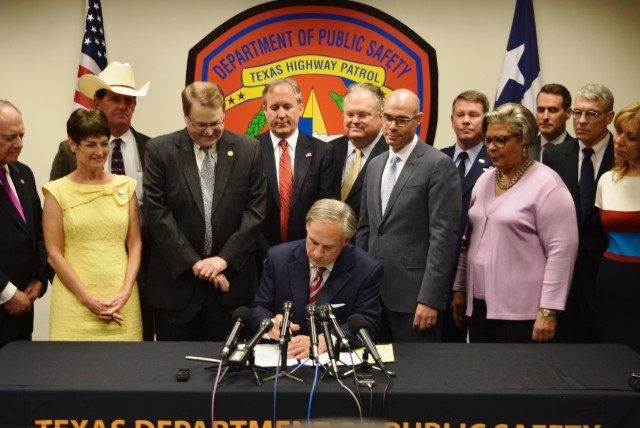With the signing of House Bill 11 on June 9 by Texas Governor Greg Abbott, a new intelligence center will be established in Hidalgo County, designed to target border crime more effectively. However, details are unclear regarding how this center’s mission will differ significantly from the multiple fusion and joint intelligence centers located across the state, calling into question whether the $2.1 million start-up cost is justified.
Officially known as the Texas Transnational Intelligence Center (TTIC), it will be operated by the Hidalgo County Sheriff’s Office and the McAllen Police Department, with assistance from the Texas Department of Public Safety, according to Action4 News.
Hidalgo County Sheriff Eddie Guerra testified before Texas lawmakers, “The center is where we can bring all those pieces together and put them together and solve crime a lot faster.” Action4 News also reported that every law enforcement agency in counties along the border or in counties that contain a federal checkpoint will be required to report certain kinds of crimes to the center, including kidnappings, home invasions, and burglaries.
However, Texas is already home to several fusion and joint operations centers designed to share crime information across agencies. These include the El Paso Intelligence Center (EPIC), the Texas Crime Information Center (TCIC) run by the Texas Department of Public Safety in Austin, the Austin Regional Intelligence Center, the Dallas Fusion Center, the El Paso Multi-Agency Tactical Response Information eXchange (MATRIX), the North Central Texas Fusion Center in McKinney, the Border Security Operations Center (BSOC) in Austin, and the Southwest Texas Fusion Center in San Antonio.
Guerra told Action4 News that the center will differ from the Joint Operations Intelligence Center (JOIC) that’s currently operated by DPS, Guerra said, because it will be locally controlled and require the cooperation of all law enforcement agencies in the border region. There are currently six JOICs located along the Texas-Mexico border that fall under the control of the BSOC. However, Guerra did not indicate how the TTIC’s mission would differ from those of the other eight fusion and joint centers across the state.
Sometimes lawmakers find it easy to appropriate funding for any such center that promotes security and intelligence sharing. But often as the presence of these centers grows – especially within the same state – conflict can occur as agencies become territorial, or intelligence gets hoarded or falls through the cracks. At a time when federal agencies are attempting to streamline and eliminate information stovepipes, the addition of redundant fusion centers can add to the logjam, no matter how great the mission sounds on paper.
The initial start-up cost for the TTIC is estimated at $2.1 million, but Guerra could not provide an estimate for how much money the county would ultimately put towards funding the center.
Sylvia Longmire is a border security expert and Contributing Editor for Breitbart Texas. You can read more about cross-border issues in her latest book, Border Insecurity: Why Big Money, Fences, and Drones Aren’t Making Us Safer.

COMMENTS
Please let us know if you're having issues with commenting.